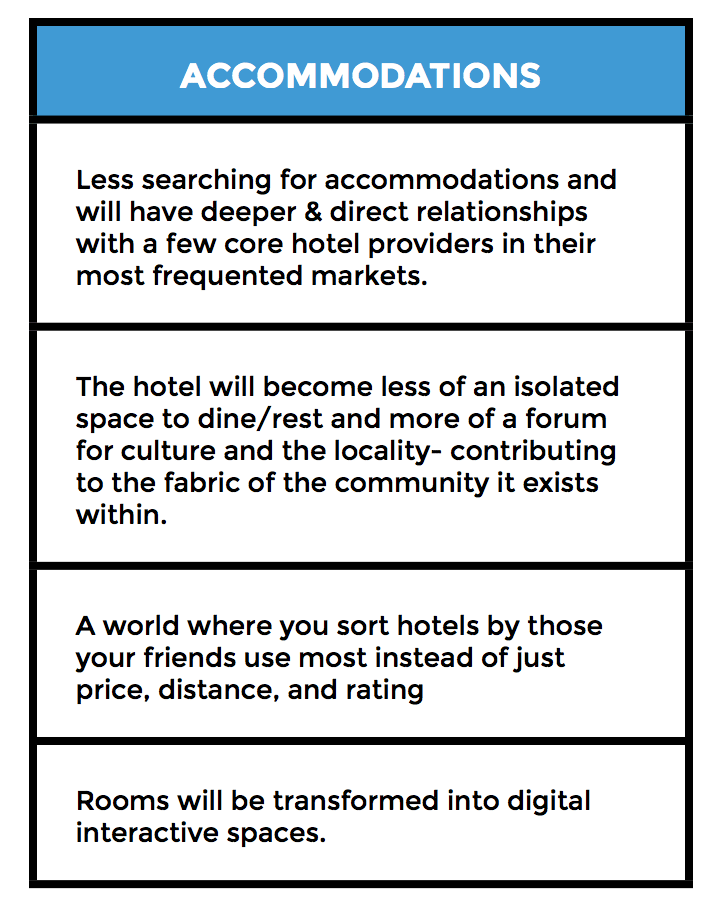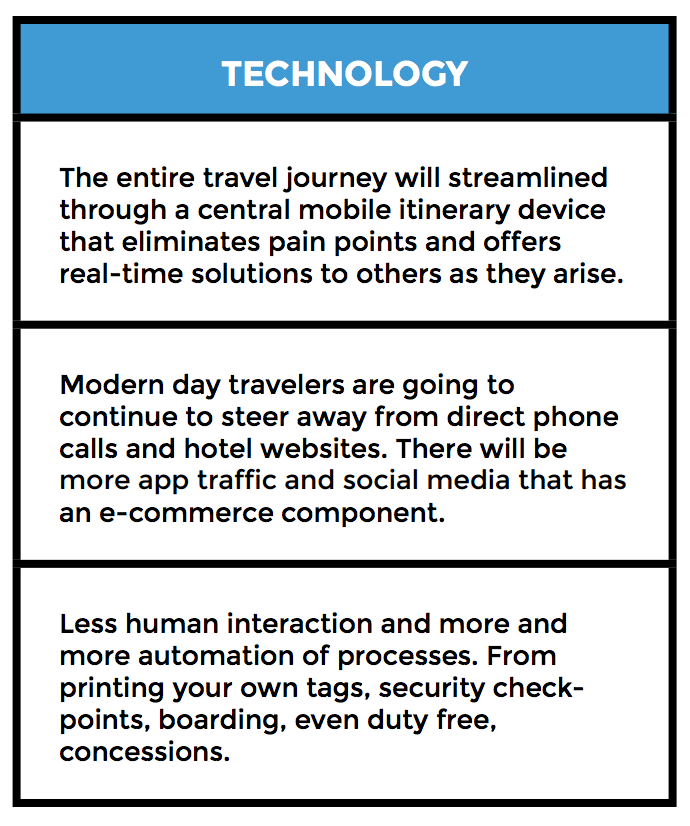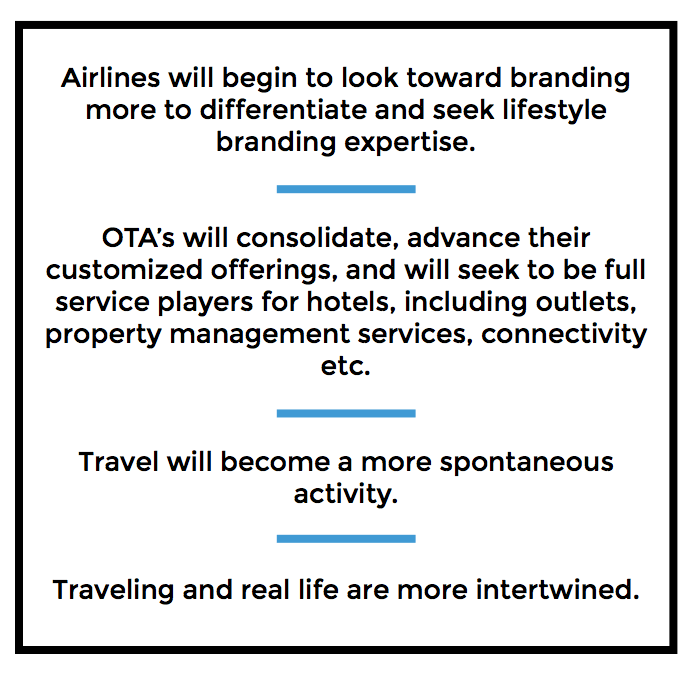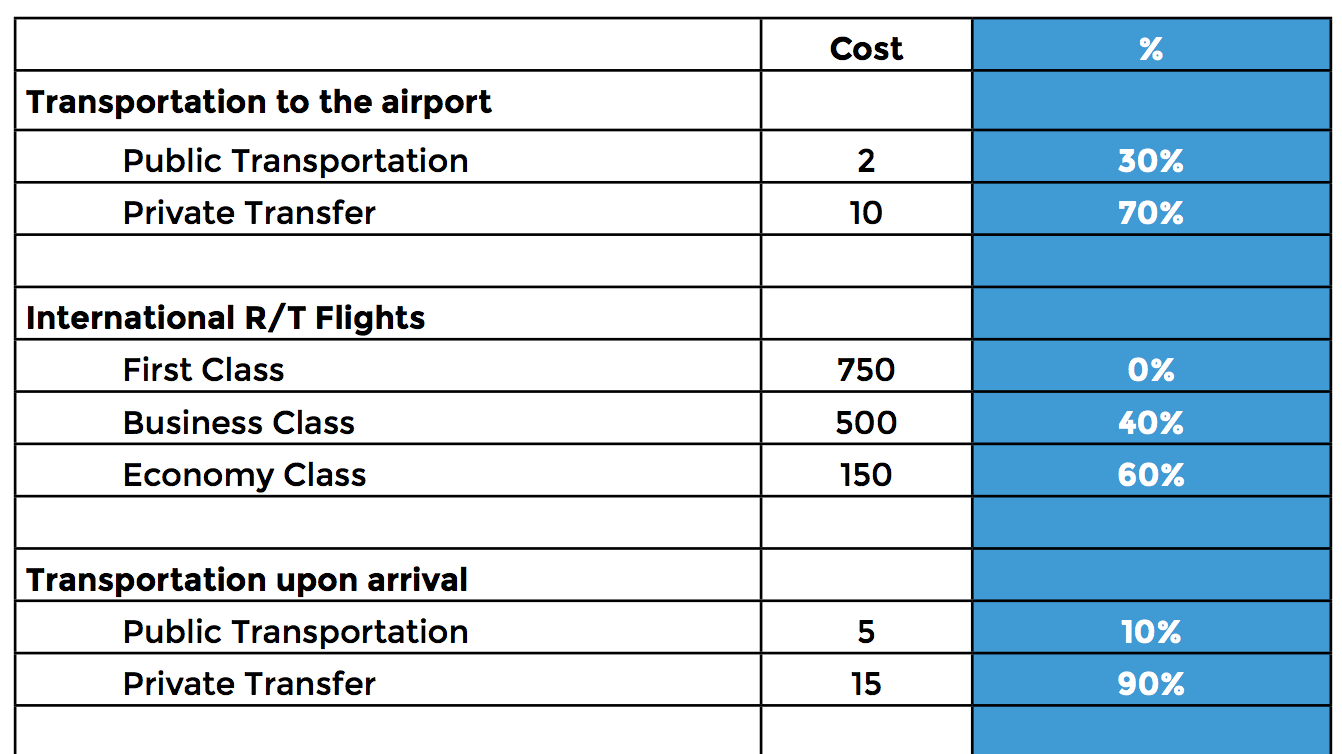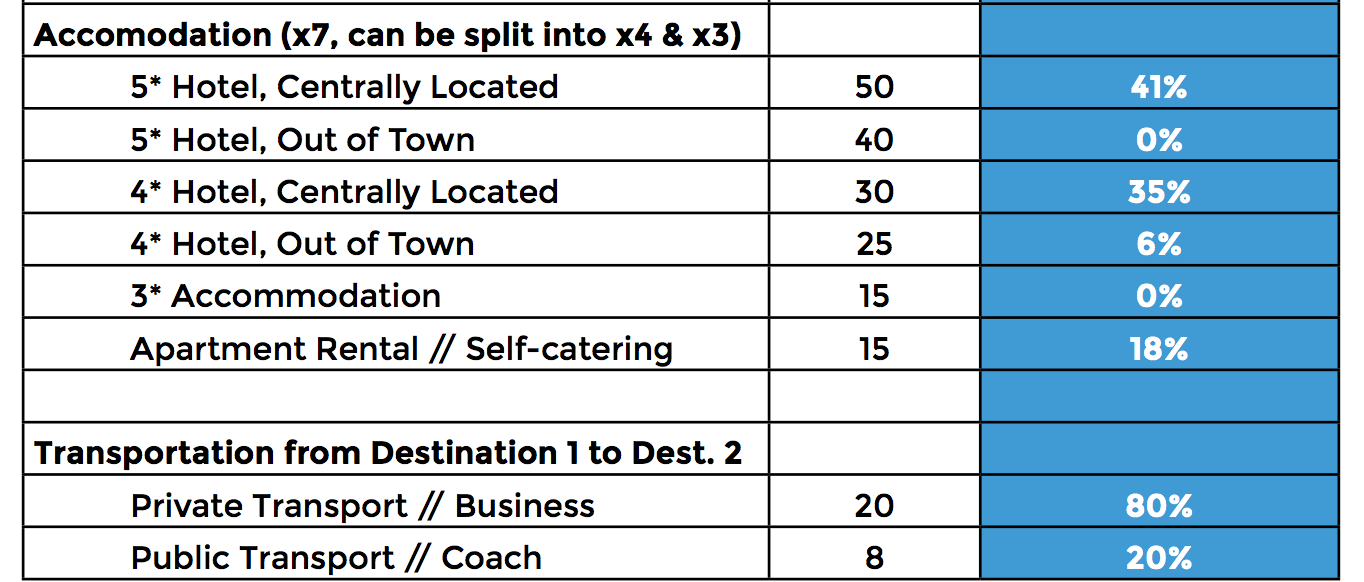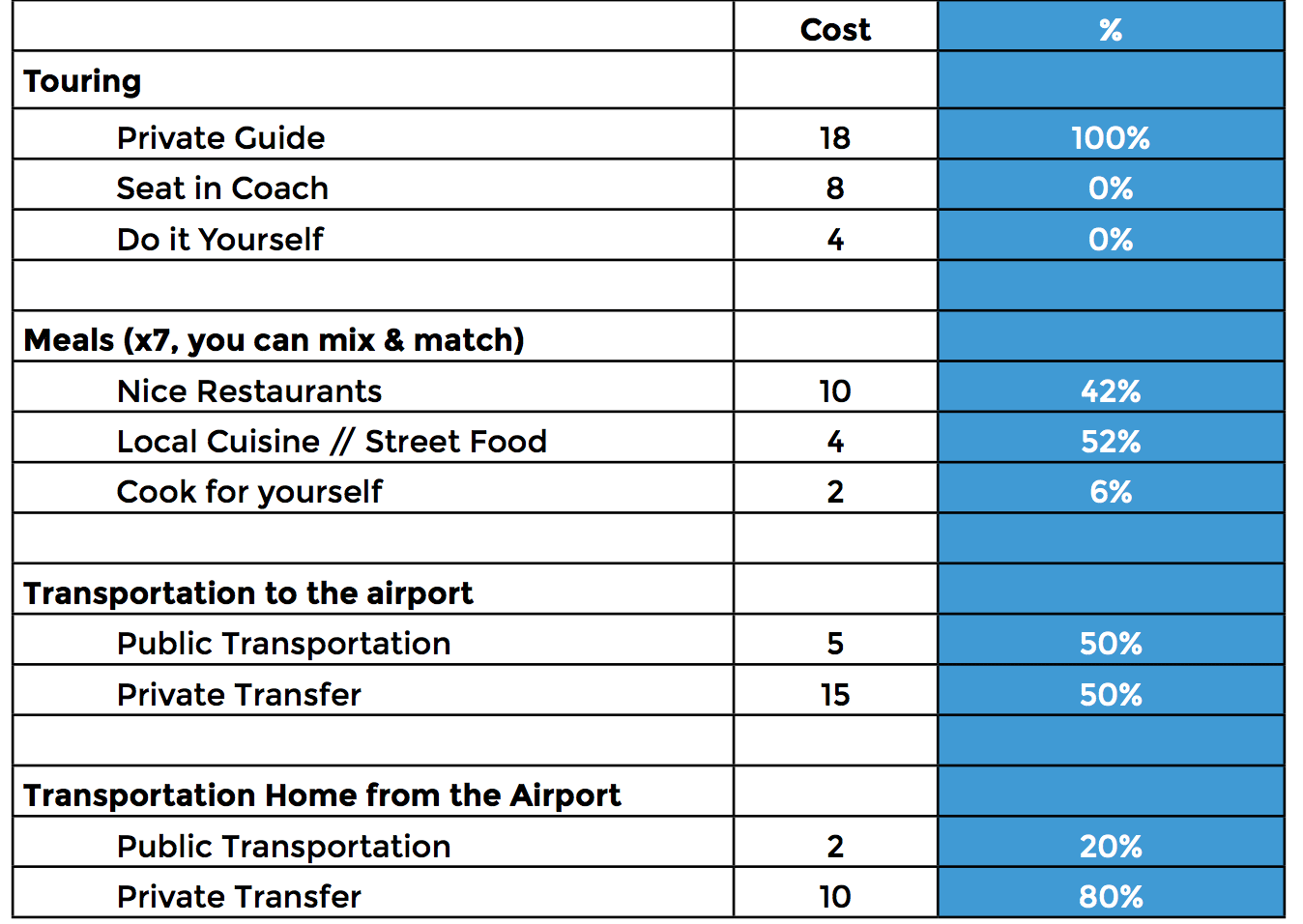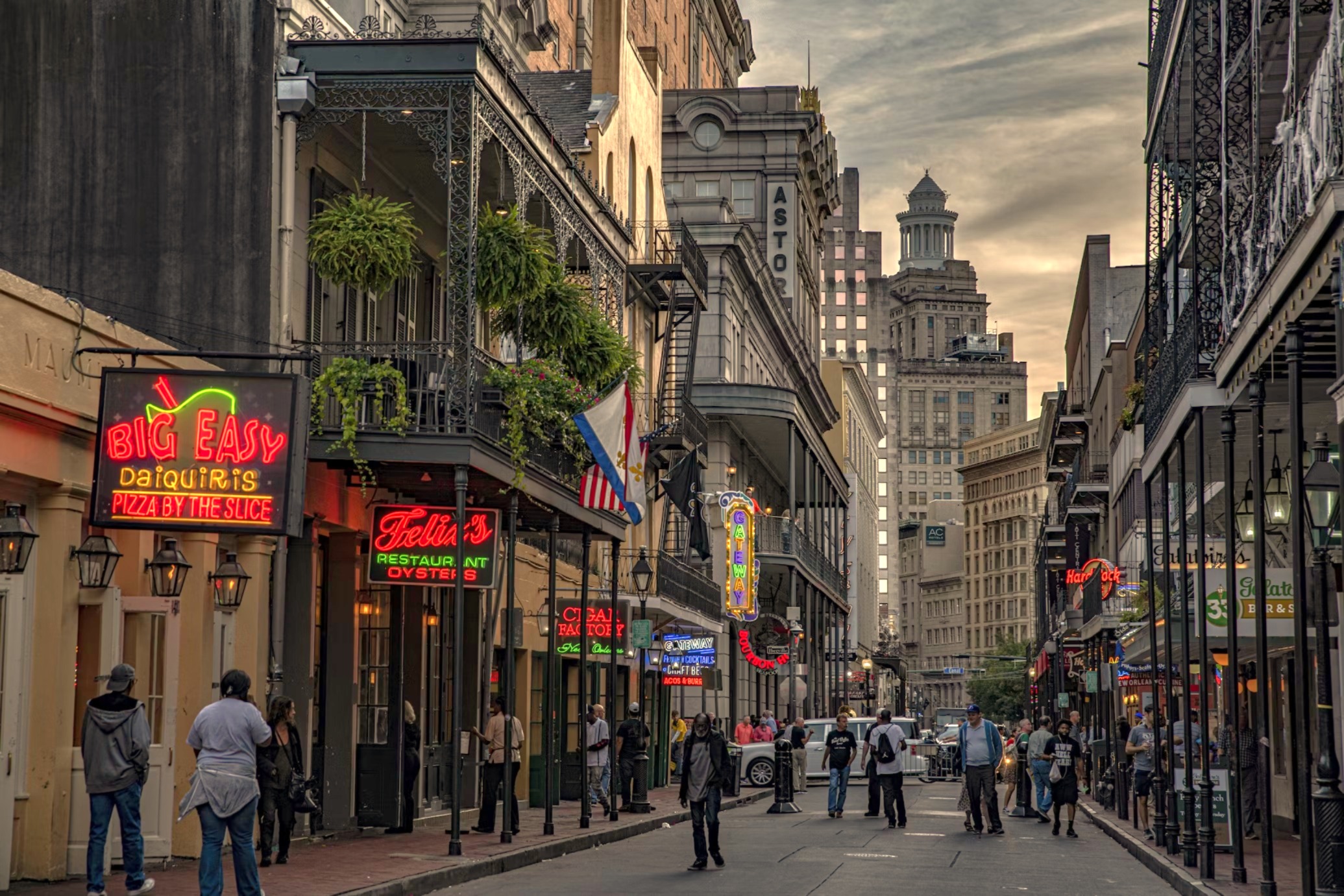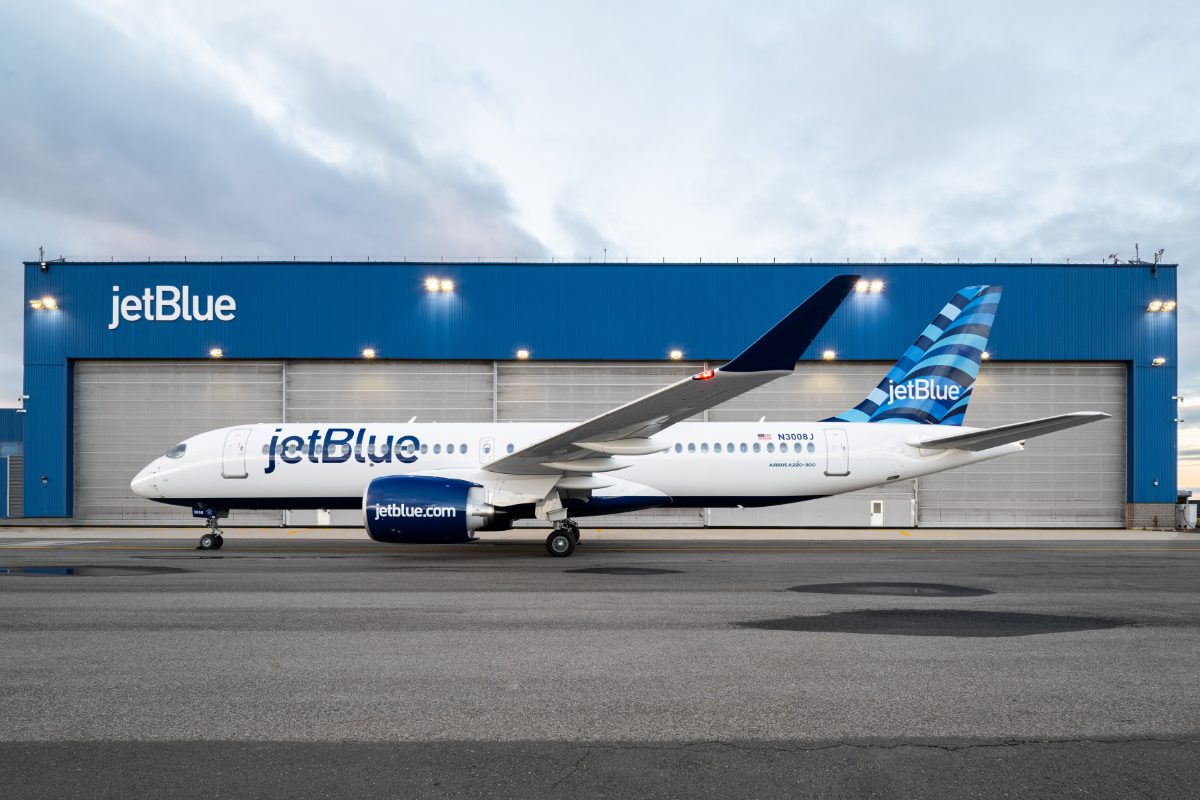What Millennial Travel Professionals Envision for the Future of Travel
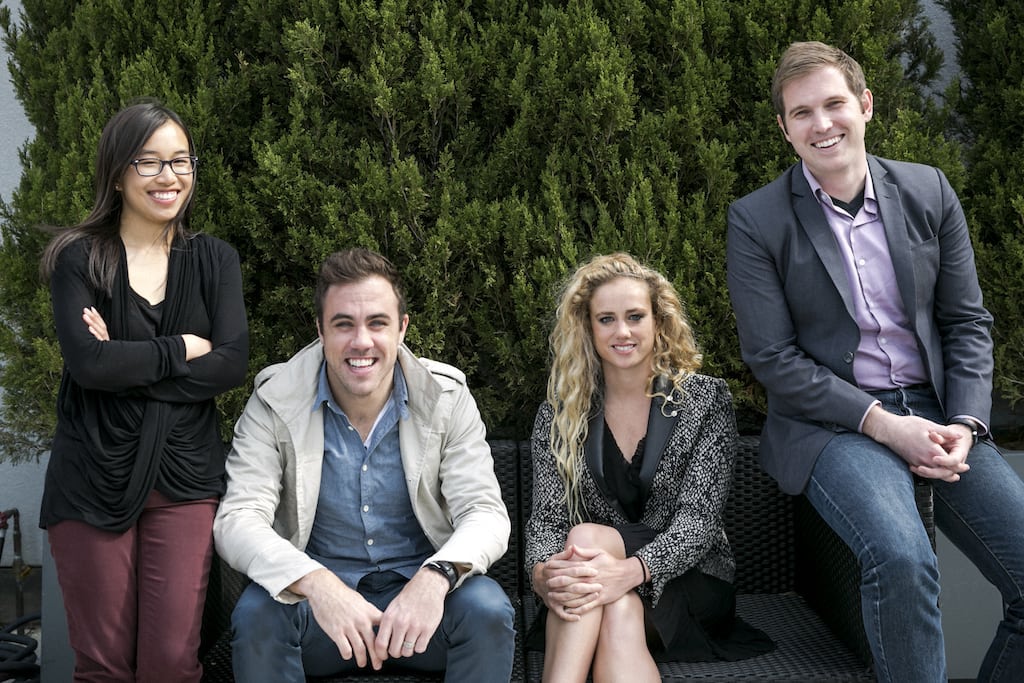
Skift Take
Some 80 millennial travel professionals entered the Onyx Room at the Park Hyatt New York last January to talk about what they know, not think, the future of travel will look like.
The room, with its color-changing walls and tables circling a soapbox-like stage, was the base for the inaugural Young Travel Professionals FutureTravelLab conference that asked attendees to collaborate and tell the older travel professionals and advisors in the room what millennial travel means.
This month the organization released a report based on ideas and discussions from the conference, which included anonymous quotes from conference attendees along with key learnings from that day. Attendees were hoteliers, travel agents, tour operators, and startup founders from 10 U.S. and international cities and the average attendee age was 29. Some 29% held manager positions and 17% were self-described CEOs.
These quotes touch on the main themes facing millennial travel professionals as they grapple with a slow-moving industry, often resistant to change, that views this generation as a mass rather than a collection of millions of personalities all wanting individualized attention and communication from brands.
Here are example quotes of pressure points millennial travel professionals feel as they consider their future. It's immediately apparent from the first one that some ideas are more grounded in reality than others.
Hiring young executives: We must increase the amount of youthful high level executives, so that the ideas, needs, and passions of the young traveler are echoed throughout the organization. The career path timeline of large organizations cannot compete with the speed of the next generation of traveler.
Bridging online and offline: Unlike other industries--for example, the consumer banking industry--the travel industry is a world that will never completely migrate online. A step in the right direction is to really pay close attention to how the customer’s experience transitions from online to the physical/in-person and vice versa.
Brands using social media: Social media has to be a way to create intentional and emotional one-on-one experiences. First look to develop a relationship with the client; never sell through social media. The next generation can see through sales pitches and un-authentic marketing schemes.
Travelers using social media: [Millennials] seem to have a different identity across different social media platforms. How do we get to one identity across all of our platforms?
Redefining luxury: We need to redefine luxury. Most youthful travelers do not want to stay in stuffy grand dame hotels. They want stylish interactive properties that customize items according to preferences. Complimentary Wi-Fi is a must, as well as great, lively social spaces. For the next generation of travelers, I believe we are missing out on the interactive aspect of booking travel (i.e. selecting airlines & accommodations). Hotel and airline companies should have more virtual tours and interactive videos on their webpages. Agencies could also incorporate videos to showcase their services or their partners.
Following are three charts with thoughts from individual attendees on what they expect travel to look like as they advance in their careers. Some of these expectations resemble a post-marketing world, where brands develop one-on-one relationships with travelers rather than blanketed marketing campaigns that aren't always effective. In that future, the term personalization fades away as it's simply the way everything is done, rather than an exception.
Imagine the travel industry 10 years from now. What are the major differences in the way people travel?
Source: Young Travel Professionals/Hyatt
What's Important to Millennials During Trips
One exercise asked attendees to consider that they had 850 units to spend on a one week (seven nights) trip to two international destinations of their choice. The journey requires approximately 12 to 15 hours on a plane. The charts below represent the cost of each aspect of the trip along with the percentage of importance that attendees indicated for each category, such as flights and type of hotel.
While this exercise was completed by people who work in travel who have deep understandings of various sectors, these attendees are still travelers who plan for and anticipate upcoming trips similar to millennials who don't work in travel.
For example, the largest percentage of attendees said they'd choose a more expensive five-star hotel that's centrally located in their destination compared to hotels with lower star ratings or alternative accommodations or apartment rentals. Their thinking was that they'd have more money for a nicer hotel if they cut back on spending at expensive restaurants and opt for street food or other local cuisine instead. Privacy is also key, with everything from airport transfers to tour guides.
Though many millennial travelers probably won't stay at five-star hotels, depending on income and traveler type, this exercise's results emphasize millennials' value of centrality and privacy at a time when many brands want travelers to venture into lesser-known neighborhoods and share their experiences with other like-minded people to establish a communal feel.
Source: Young Travel Professionals/Hyatt
